The Li Ka Shing Foundation (LKSF) and Temasek Trust (TT) have committed S$12 million to bring innovative non-invasive ultrasound-based histotripsy tumour clinical trials to Singapore. The funding will be disbursed through a Donor-Advised Fund (DAF) managed by TT Foundation Advisors (TTFA), as announced at a launch event in April. Through the DAF, TTFA aims to attract additional capital from other donors over time to sustainably support future cancer research.
The National Cancer Centre Singapore (NCCS) and the National University Cancer Institute, Singapore (NCIS) will each receive one Histotripsy System — the first to be available in Southeast Asia. The funding from LKSF and TT will also support a clinical trial in Singapore for patients with liver, kidney, and pancreatic cancers, advancing regional cancer research and innovation. The trial is slated to start later this year.
Histotripsy — An Innovative Technology to Combat Cancer
Developed by US medical company HistoSonics, the HistoSonics Histotripsy System is the first non-invasive technology capable of destroying tumours, including those that cannot be surgically removed.
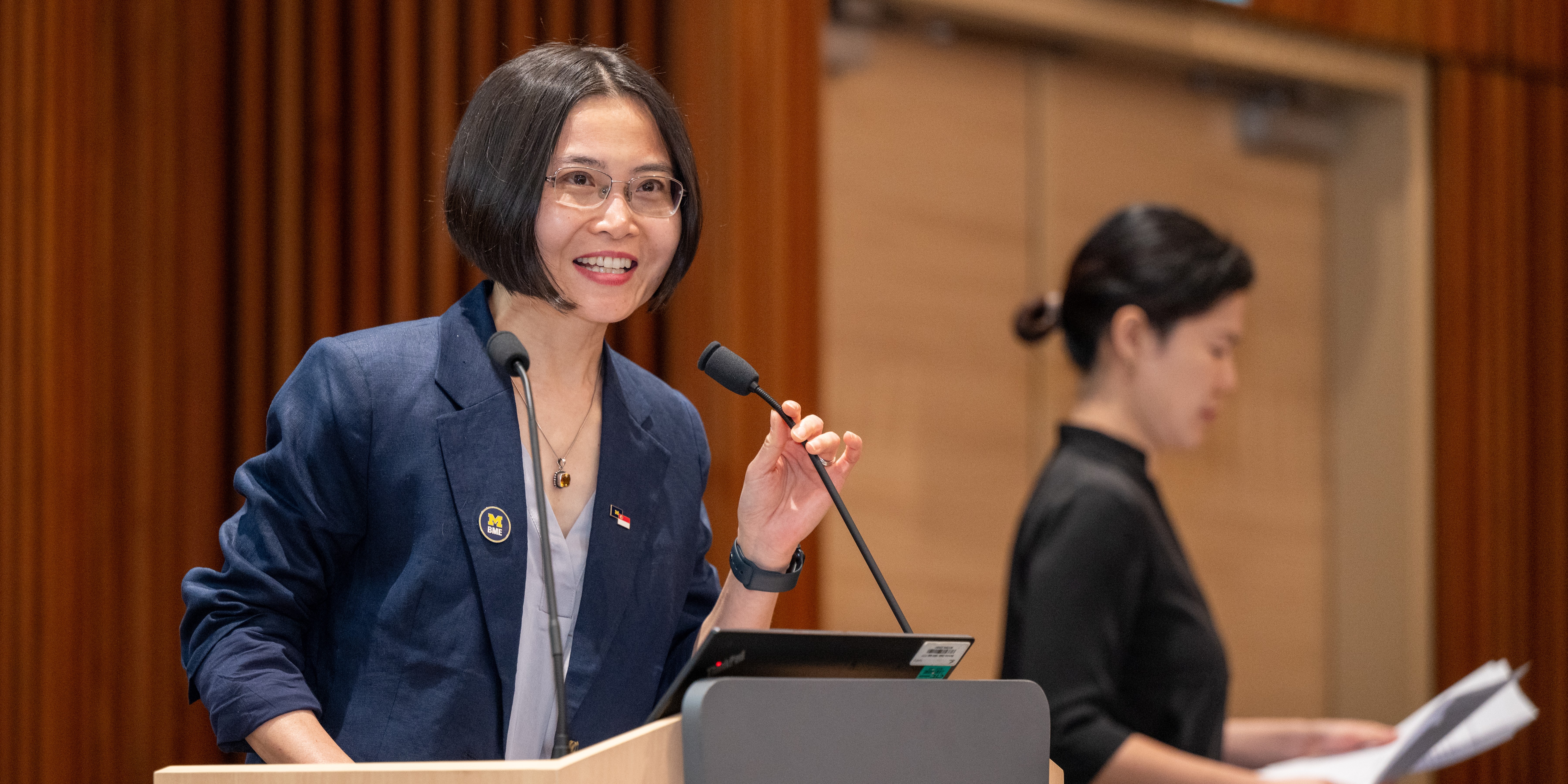
Dr. Zhen Xu, University of Michigan, introduced the Histotripsy technology — which she co-invented — and shared its benefits as well as potential future applications.
Histotripsy – meaning the breaking down of soft tissue — directs focused ultrasound to targeted tumour tissue in the patient’s body, producing microbubbles that rapidly expand and collapse, explained Dr. Zhen Xu, its co-inventor and scientific co-founder of HistoSonics. This generates shock waves strong enough to break down tumours at the cellular level, said the Li Ka Shing Endowed Professor of Biomedical Engineering, University of Michigan.
The technology is precise and allows real-time image guidance to ensure the treatment’s safety. It also selectively preserves tissues in the treatment zone, allowing them to remain intact while treating high-risk and surgically inoperable locations.
Dr. Xu is optimistic that Histotripsy will signal the start of a new era of non-invasive surgery, changing the way medicine is practised.
"We hope and believe that Singapore will be an important pioneer and player in this new, exciting era."
— Dr. Zhen Xu, University of Michigan; Co-inventor of Histotripsy
During his live demonstration of the Histotripsy System, Mr. Mike Blue, CEO and President, HistoSonics, described how the technology determines the energy needed to treat a specific tumour before proceeding to liquefy it via an automated robotic arm moving in fine positions.
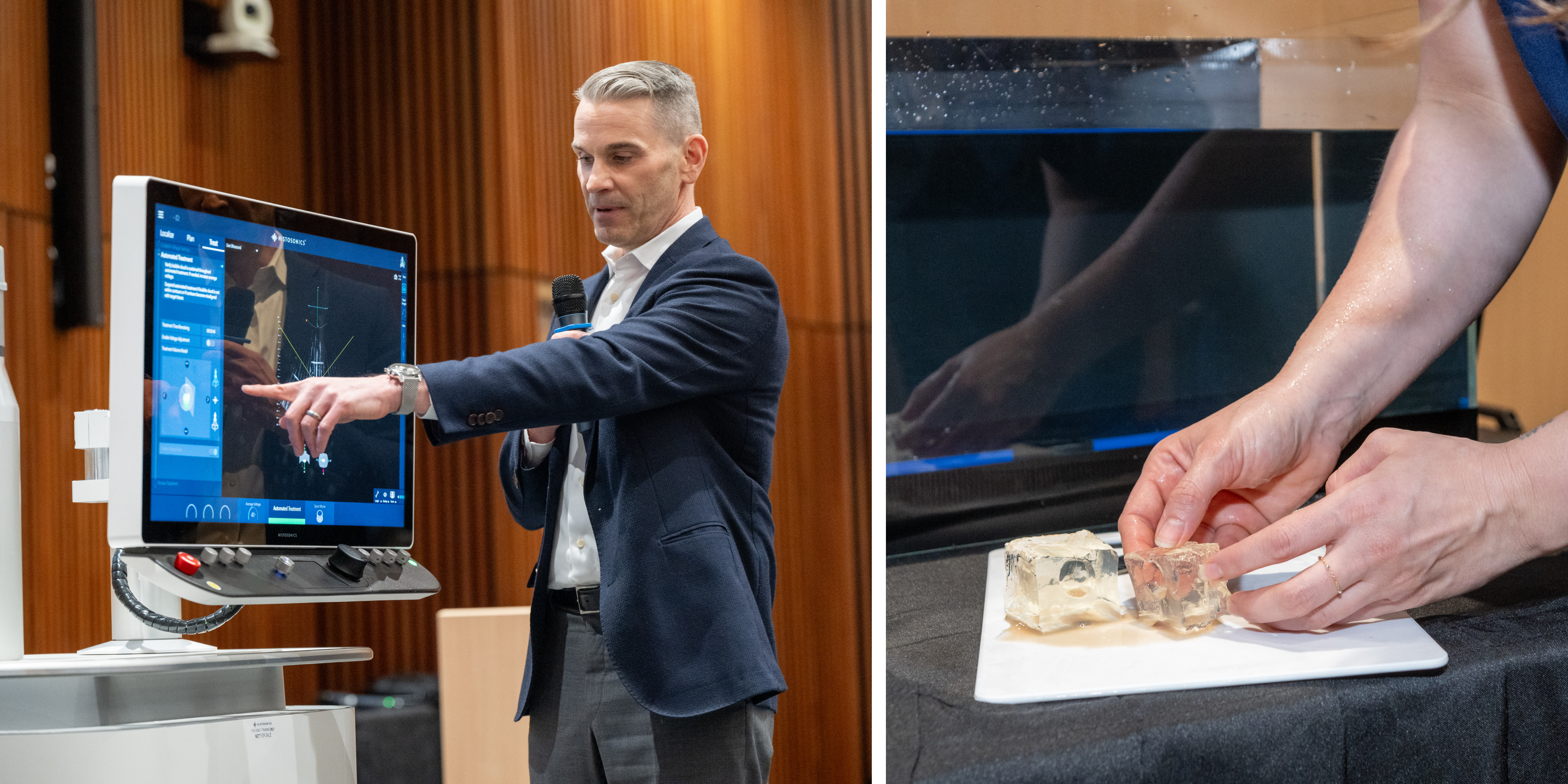
HistoSonics' Mr. Mike Blue (left) conducts a live demonstration of the HistoSonics Histotripsy System. The system can break down and liquefy a tumour tissue sample (right).
The process does not require incisions, radiation, or heat, allowing for painless, scarless, and bloodless treatment. Innovations such as Histotripsy offer an alternative with potential advantages for cancer patients who are not suited to invasive treatments such as surgery, radiotherapy, or traditional ablation. This can be due to various factors such as patient fitness, tumour location, or underlying liver disease.
Kickstarting Clinical Research to Improve Patient Outcomes
In Singapore, preparation is underway for clinical trials for liver, kidney, and pancreatic cancers, using the HistoSonics Histotripsy System. Trials for liver cancers will be initiated first, according to Professor Brian Goh, Head of Hepatopancreatobiliary and Transplant Surgery, NCCS and Singapore General Hospital. Prof Goh is also the principal investigator of the trial.
He will work alongside a team of oncologists, interventional radiologists, and researchers from both NCCS and NCIS. The trial is slated to begin later this year with a targeted enrolment of 40 patients.
Professor Teh Bin Tean, Deputy CEO (Research), NCCS, emphasised that its research efforts ultimately aim to translate cancer science into real clinical impact to benefit its patients and advance cancer research, particularly for Asian-prevalent cancers.
“With this generous gift to NCCS and the NCIS, Singapore will be the first in Southeast Asia to conduct [a clinical trial] for patients with liver, kidney, and pancreatic cancers to study the safety and efficacy of Histotripsy,” Prof Teh said.
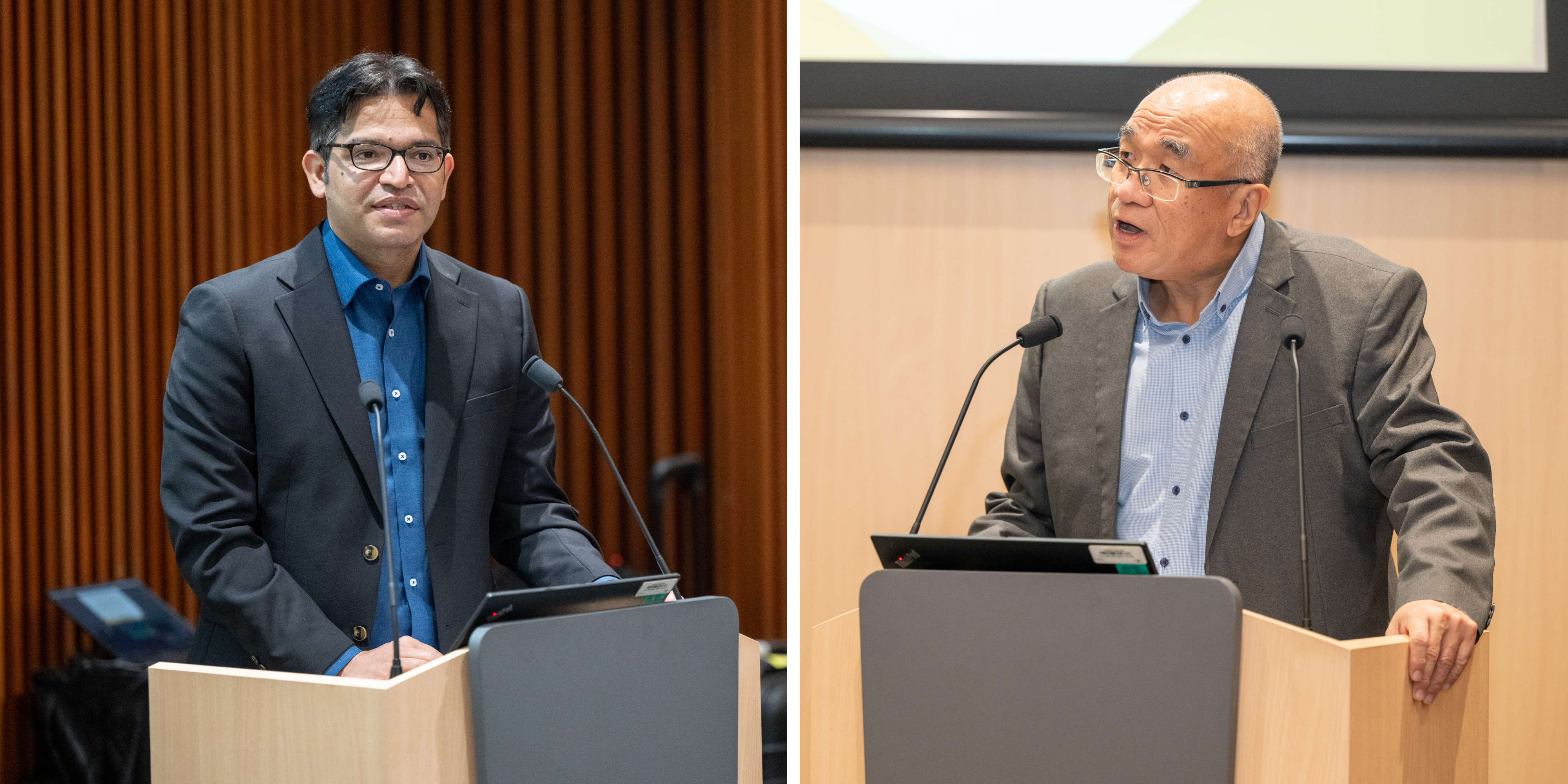
Dr. Rahul Lohan (left), NCIS, and Prof Teh, NCCS, each noted the importance of the clinical trials, co-funded by LKSF and TT, in advancing critical cancer research for complex cancers like liver cancer.
This clinical trial will generate valuable insights that could pave the way for expanding Histotripsy applications to other complex cancers, added Dr. Rahul Lohan, Senior Consultant, Department of Diagnostic Imaging, National University Hospital, NCIS.
Partnering to Accelerate Cancer Innovation and Solutions
Besides technology, such philanthropic-public-private partnerships can help to fuel the pipelines of innovation — turning lab discoveries into novel solutions.
In his video remarks for the event, Mr. Li Ka-shing, Chairman, Li Ka Shing Foundation, shared, “In a world where medical innovation is crucial for addressing the complexities of cancer, our partnership [with Temasek Trust] underscores the power of collaboration and philanthropy in driving progress.”
In her event remarks, Ms. Ho Ching, Chairman, Temasek Trust, expressed her gratitude to Mr. Li and the Li Ka Shing Foundation for their generosity in bringing this technology — first approved by the United States for liver cancer in 2023 — to Singapore.
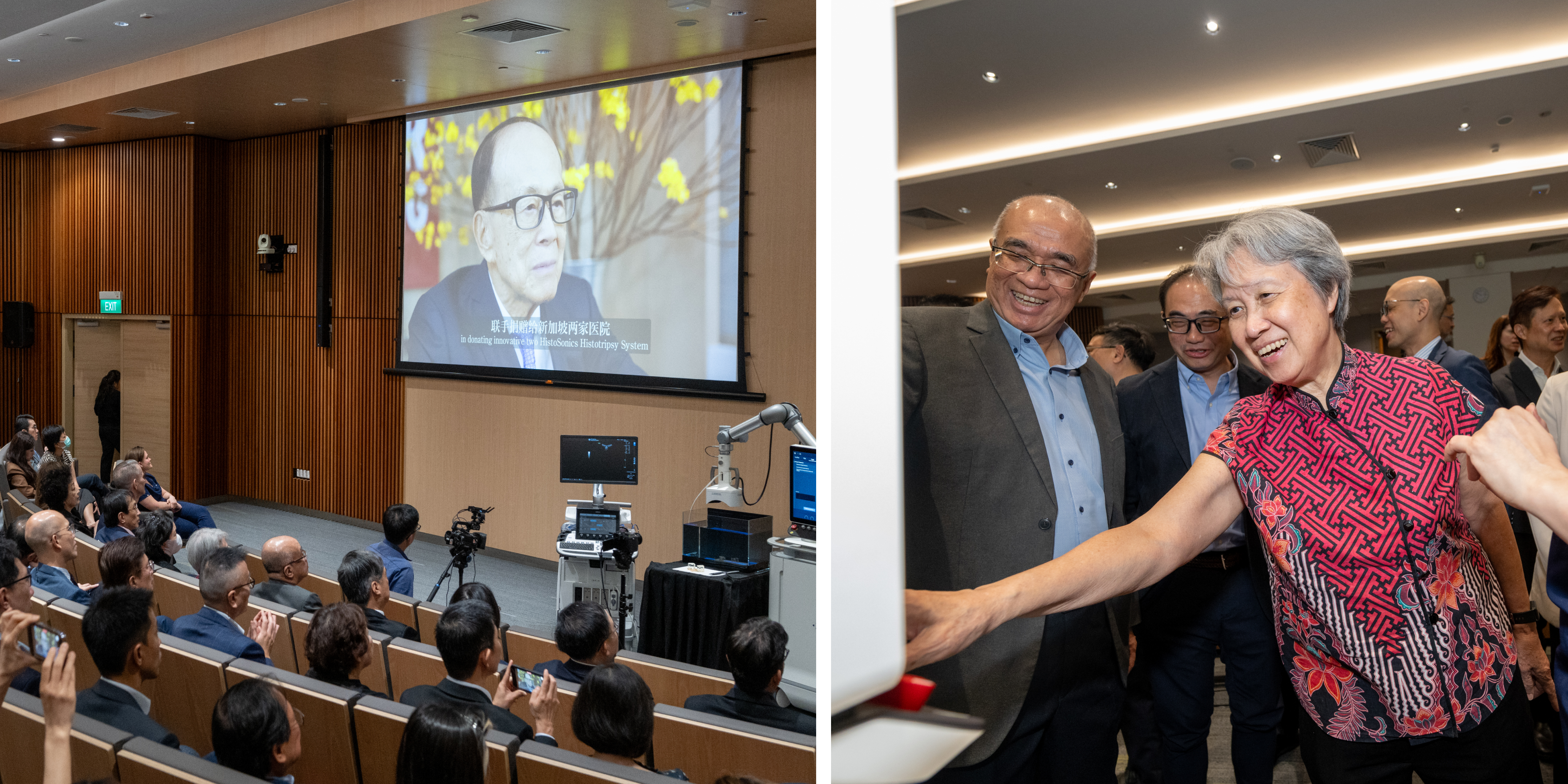
Mr. Li Ka-shing (left), LKSF, delivered video remarks on how the partnership aims to empower medical professionals to provide effective cancer care. Ms. Ho Ching, TT, shared her hopes for the authorisation of the Histotripsy treatment in Singapore.
The Donor-Advised Fund managed by TTFA aims to attract additional capital from other donors over time to expand clinical trials and sustainably support future cancer research in Asia.
As Mr. Dickson Lim, Head of TTFA, shared: “This project is an excellent example of how our DAF is used to allow different donors to contribute to the same impactful and life-saving programme. Donors can also customise their support according to their specific interests.”
Donors can remain anonymous and may also leverage TTFA’s expertise and governance services to benefit from immediate tax deductions.
Watch highlights from the launch event:
TTFA aims to deliver impactful solutions at scale by supporting donors on their collaborative journeys of giving.
To find out more about TTFA, visit ttfa.sg, follow it on LinkedIn, or reach out to [email protected].
Stay connected with the Temasek Trust ecosystem by following us LinkedIn, Instagram, TikTok, Facebook, and YouTube.
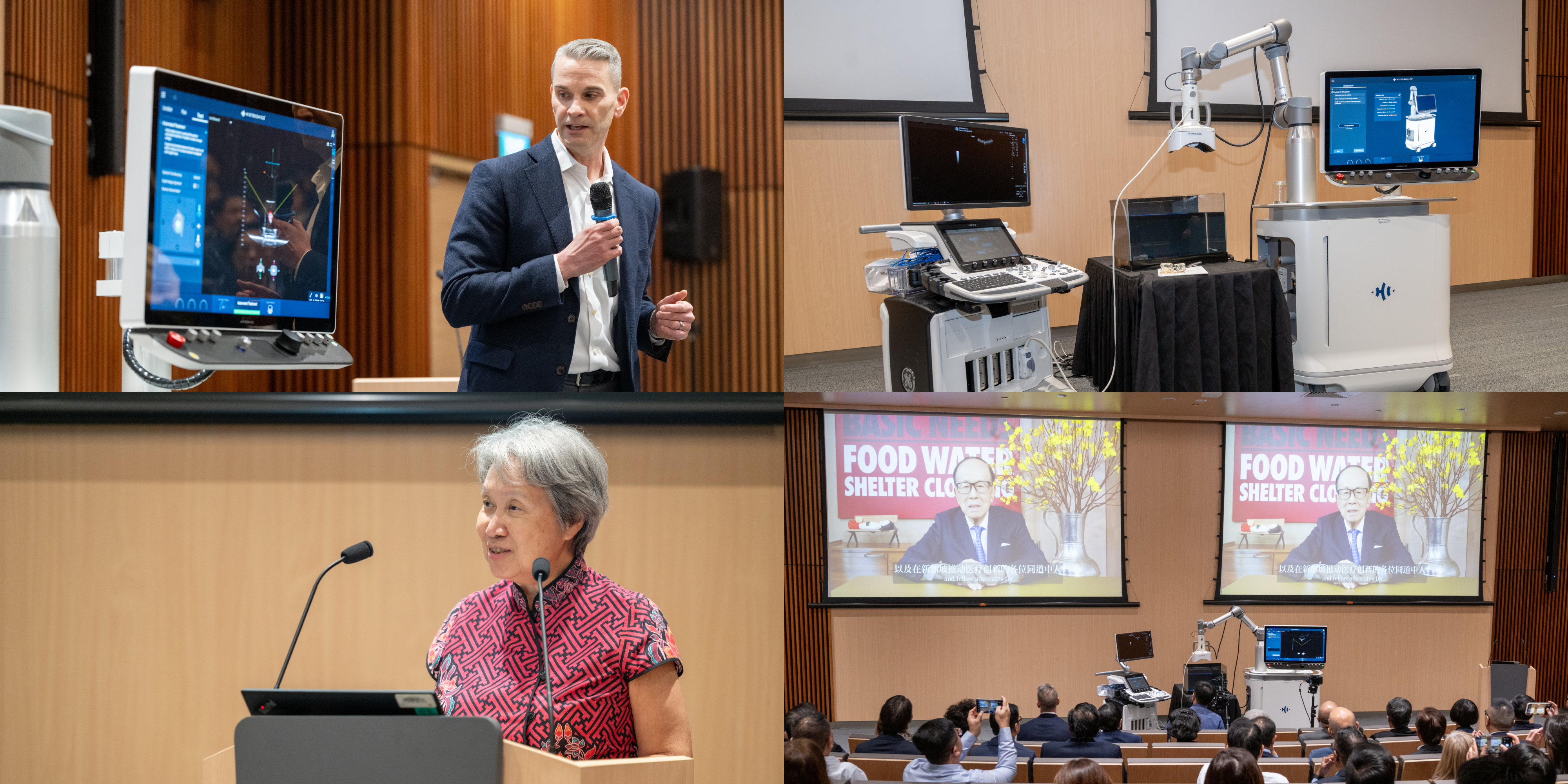
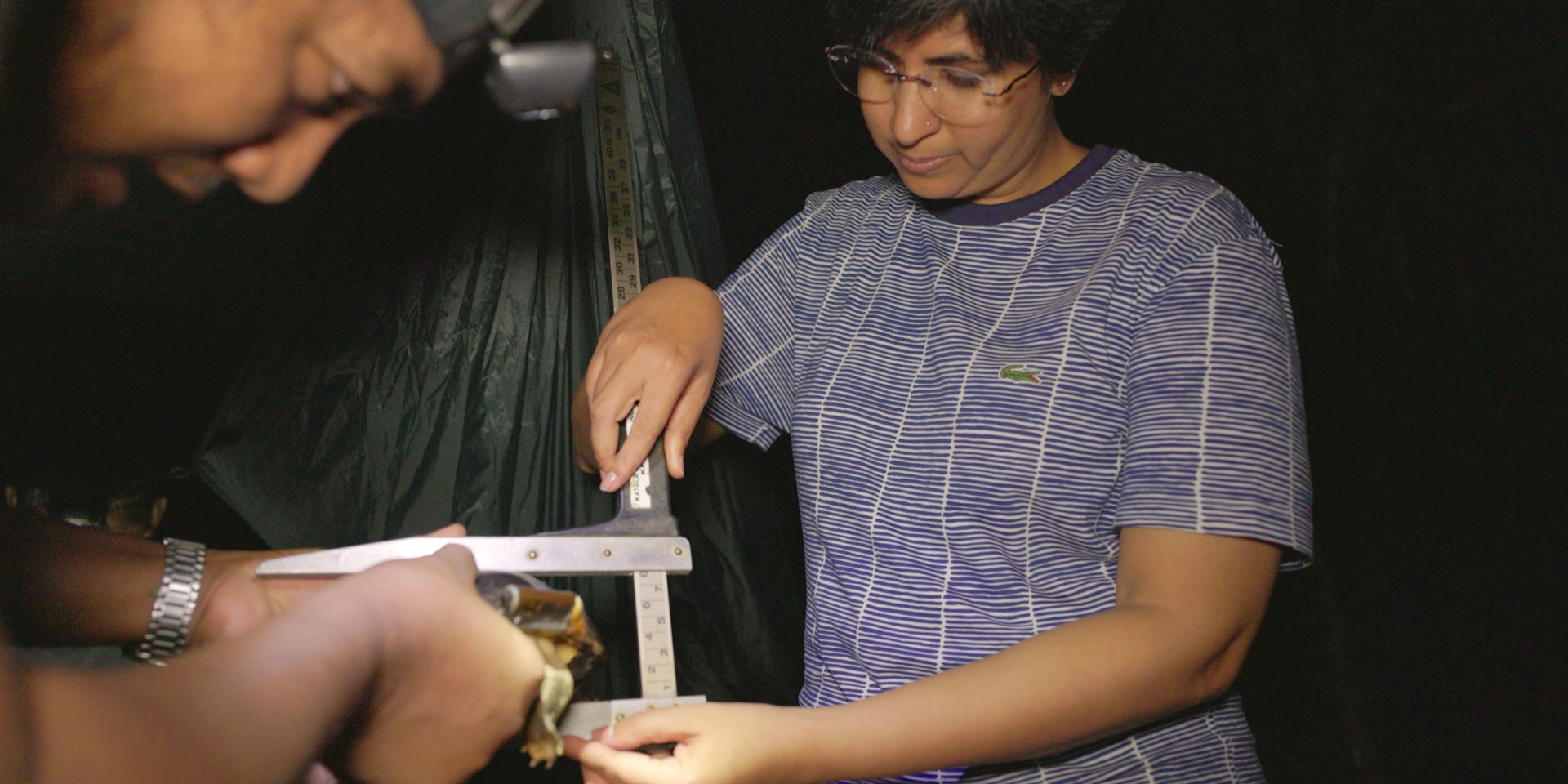
.jpeg?sfvrsn=38539f0c_1)
